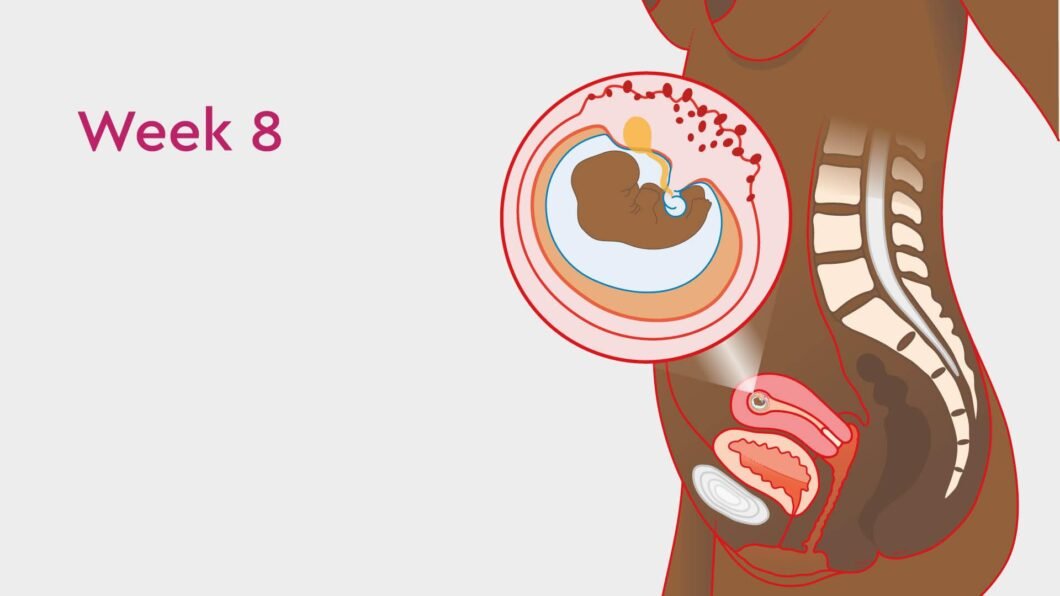During the 8th week of pregnancy, both the mother and the developing baby experience significant changes:
For the Mother:

- Physical Changes: By the 8th week, the mother may start to notice a visible baby bump as the uterus expands to accommodate the growing fetus. Other physical changes, such as breast tenderness, nausea, and fatigue, may continue or intensify.
- Emotional Changes: Hormonal fluctuations during pregnancy can lead to mood swings and emotional changes. It’s important for the mother to seek support from her partner, family, or healthcare provider if she’s feeling overwhelmed or anxious.
- Prenatal Care: Regular prenatal appointments become even more crucial during the 8th week of pregnancy. The healthcare provider will monitor the baby’s growth and development, perform necessary tests, and address any concerns or questions the mother may have.
For the Baby:

- Organ Development: By the 8th week, the baby’s major organs, including the heart, brain, liver, and kidneys, have formed. These organs continue to mature and develop throughout the pregnancy.
- Limb Growth: The baby’s arms and legs continue to grow and develop, and tiny fingers and toes become more defined. The baby may start to make small movements, although these are usually not felt by the mother yet.
- Facial Features: Facial features become more pronounced during the 8th week, with the eyes moving closer together and the ears starting to take shape. However, the baby’s eyelids are still fused shut and will remain so for several more weeks.
- Sexual Differentiation: By the 8th week, the baby’s genitals have formed, and sexual differentiation becomes more apparent. However, it may still be too early to determine the baby’s sex through ultrasound imaging.
Overall, the 8th week of pregnancy marks a crucial stage in both the mother’s and baby’s development. It’s essential for the mother to continue practicing healthy habits, such as eating a balanced diet, staying hydrated, getting regular exercise, and getting plenty of rest. Additionally, open communication with healthcare providers can help address any concerns and ensure the best possible outcomes for both mother and baby.
Visited 18 times, 1 visit(s) today

